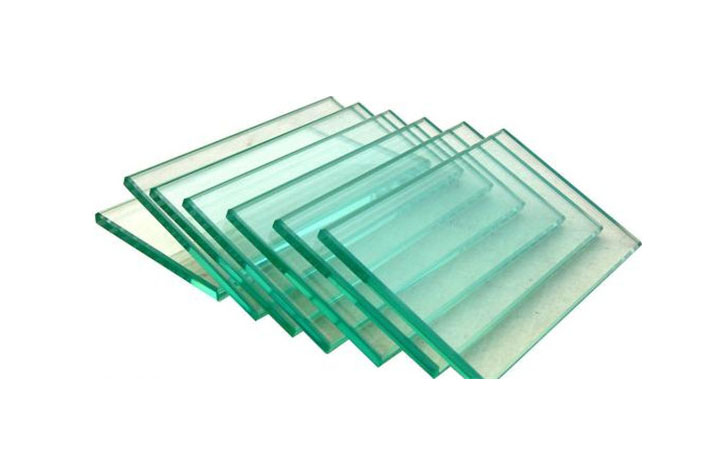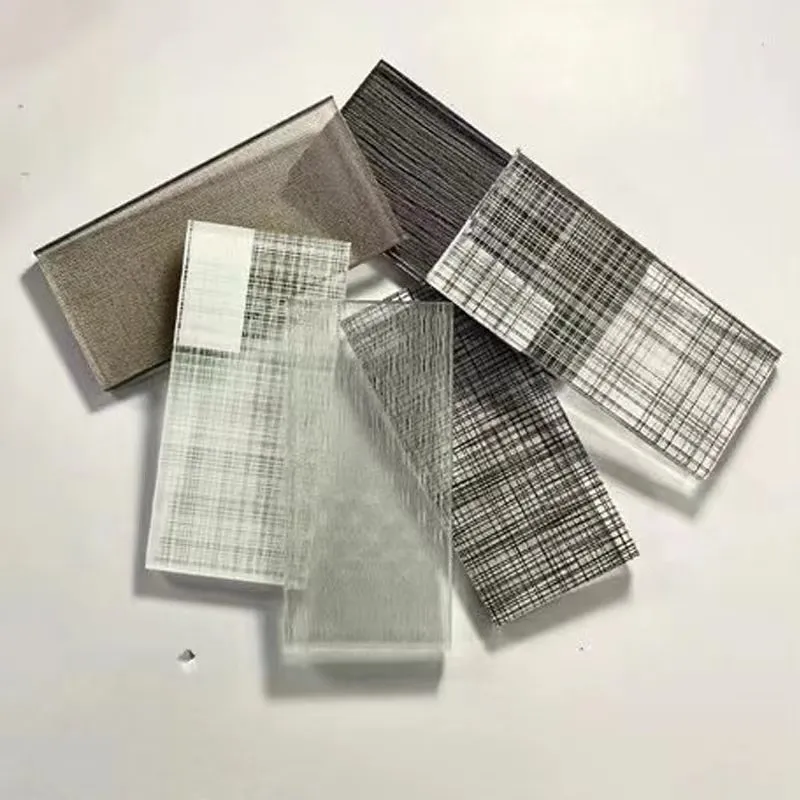Float glass is a revolutionary product that has transformed the world of architecture and design. Developed in the mid-20th century, it is produced by pouring molten glass onto a bed of molten tin. This process results in a perfectly flat and uniform glass sheet, known for its exceptional optical clarity, strength, and versatility. Float glass is indispensable in both industrial and residential applications, and understanding its nuances can empower consumers and builders to make more informed decisions.

The advantages of float glass primarily stem from its manufacturing process. The float technique allows for the production of glass with nearly flawless surface smoothness and uniform thickness. This precision is crucial for applications requiring high optical clarity, such as storefronts, glass facades, and windows. Its seamless appearance enhances the aesthetic appeal of architectural projects, rendering it a favorite among designers seeking elegance and modernity.
Beyond aesthetics, float glass is lauded for its durability and adaptability. Its inherent strength can be further augmented through processes such as tempering, laminating, and coating. Tempered float glass is heat-treated to increase its resilience, making it an ideal candidate for safety glass in vehicles and buildings. Laminated float glass, created by sandwiching a plastic interlayer between two sheets, provides enhanced security and soundproofing, thus serving vital roles in settings necessitating additional protection against breakage and external noise.

One of the less highlighted yet equally significant attributes of float glass is its energy efficiency potential. Coated float glass, often termed Low-E (low emissivity) glass, features a microscopically thin metallic coating that reflects infrared heat while maintaining transparency. This property enables buildings to reduce reliance on artificial heating and cooling, leading to substantial energy savings and a reduction in environmental footprint. This sustainable advantage aligns with growing global demands for eco-friendly construction practices, making float glass an integral component of green building strategies.
float glass meaning
Manufacturers of float glass continuously innovate, turning towards more sustainable production methods to reduce carbon emissions and water usage. The float glass industry is moving towards incorporating recycled glass cullets, minimizing the raw material demand and the subsequent environmental impact. Such advances not only enhance the environmental performance of float glass but also bolster the credibility and trustworthiness of manufacturers committed to sustainability.
In terms of industry expertise, professionals dealing with float glass must possess a comprehensive understanding of its capabilities and limitations. The quality of float glass can vary based on manufacturer standards and specific applications, necessitating careful selection and inspection. Clients should rely on certified and experienced suppliers to ensure that the glass meets the stringent demands of safety, performance, and longevity.
Concluding with a focus on real-world applications, float glass remains a cornerstone material in contemporary construction and design. Its merger of transparency, strength, and efficiency makes it uniquely positioned to meet the evolving demands of a rapidly changing world. As both a functional and decorative element, float glass embodies the intricate balance between cutting-edge technology and timeless beauty.
 Afrikaans
Afrikaans  Albanian
Albanian  Amharic
Amharic  Arabic
Arabic  Armenian
Armenian  Azerbaijani
Azerbaijani  Basque
Basque  Belarusian
Belarusian  Bengali
Bengali  Bosnian
Bosnian  Bulgarian
Bulgarian  Catalan
Catalan  Cebuano
Cebuano  Corsican
Corsican  Croatian
Croatian  Czech
Czech  Danish
Danish  Dutch
Dutch  English
English  Esperanto
Esperanto  Estonian
Estonian  Finnish
Finnish  French
French  Frisian
Frisian  Galician
Galician  Georgian
Georgian  German
German  Greek
Greek  Gujarati
Gujarati  Haitian Creole
Haitian Creole  hausa
hausa  hawaiian
hawaiian  Hebrew
Hebrew  Hindi
Hindi  Miao
Miao  Hungarian
Hungarian  Icelandic
Icelandic  igbo
igbo  Indonesian
Indonesian  irish
irish  Italian
Italian  Japanese
Japanese  Javanese
Javanese  Kannada
Kannada  kazakh
kazakh  Khmer
Khmer  Rwandese
Rwandese  Korean
Korean  Kurdish
Kurdish  Kyrgyz
Kyrgyz  Lao
Lao  Latin
Latin  Latvian
Latvian  Lithuanian
Lithuanian  Luxembourgish
Luxembourgish  Macedonian
Macedonian  Malgashi
Malgashi  Malay
Malay  Malayalam
Malayalam  Maltese
Maltese  Maori
Maori  Marathi
Marathi  Mongolian
Mongolian  Myanmar
Myanmar  Nepali
Nepali  Norwegian
Norwegian  Norwegian
Norwegian  Occitan
Occitan  Pashto
Pashto  Persian
Persian  Polish
Polish  Portuguese
Portuguese  Punjabi
Punjabi  Romanian
Romanian  Russian
Russian  Samoan
Samoan  Scottish Gaelic
Scottish Gaelic  Serbian
Serbian  Sesotho
Sesotho  Shona
Shona  Sindhi
Sindhi  Sinhala
Sinhala  Slovak
Slovak  Slovenian
Slovenian  Somali
Somali  Spanish
Spanish  Sundanese
Sundanese  Swahili
Swahili  Swedish
Swedish  Tagalog
Tagalog  Tajik
Tajik  Tamil
Tamil  Tatar
Tatar  Telugu
Telugu  Thai
Thai  Turkish
Turkish  Turkmen
Turkmen  Ukrainian
Ukrainian  Urdu
Urdu  Uighur
Uighur  Uzbek
Uzbek  Vietnamese
Vietnamese  Welsh
Welsh  Bantu
Bantu  Yiddish
Yiddish  Yoruba
Yoruba  Zulu
Zulu 


